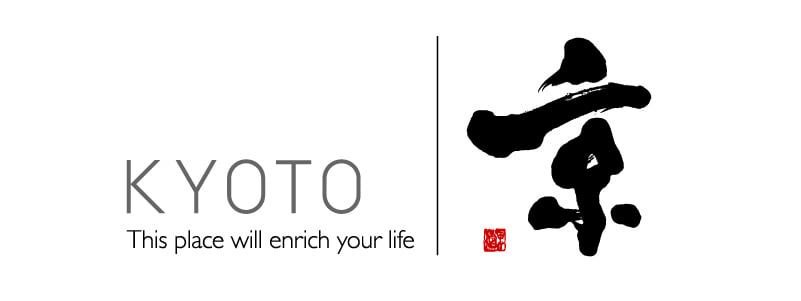Term archive

投稿タイプ:column
8 Spectacular and Secluded Spots to see Autumn Leaves in Kyoto
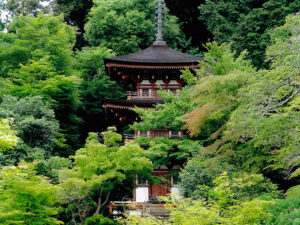
投稿タイプ:events
Minami Yamashiro Old Temple Pilgrimage tour
We hold ‘Minami-Yamashiro Old Temple Tour’ jointly with this Special Exhibition Celebrating the Completion of Repairs to Jōruriji’s National Treasure Amida Statues Numinous Minamiyamashiro ~Treasures from the Mountains between Nara and Kyoto~ in Nara National Museum.
In this tour, we travel around old temples in Minami-Yamashiro area.
How about experiencing the history and the culture in Minami-Yamashiro area which links Kyoto and Nara?
In old temples, we can also see the special exhibition.

投稿タイプ:column
The Terroir of Kyoto on a Plate: Seven Great Local Eateries
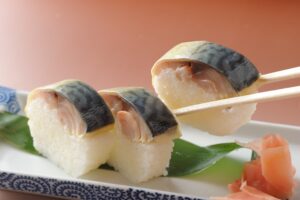
投稿タイプ:restaurants
Asahi-ya Makerel Sushi
This friendly, old-fashioned Japanese restaurant specializes in traditional saba-sushi (mackerel sushi), and can be foudn just in front of Iwashimizu-hachimangu Station on the Keihan Line. Located at the foot of Ishimizu Hachimangu, a National Treasure, Asahi-ya has been in business for over 100 years.
The restaurant serves its specialty, mackerel bouzushi (""stick"" sushi) using carefully selected top-quality mackerel from northeastern Japan, rice and vegetables from Yawata, and other fresh seafood ingredients. Take-out is also available.
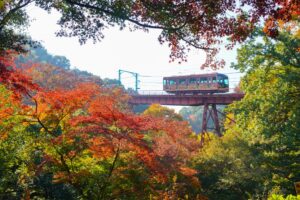
投稿タイプ:sightseeing
Iwashimizu-hachimangu-sando Cable
This cable car, laid out to lead visitors to Iwashmizu-hachimangu Shrine, connects Iwashimizu-hachimangu Station to the Iwashimizu-hachimangu-sanjo Station in a 3-minute ride one-way.
From the windows of the train, you can see the Kizu and Uji Rivers, as well as the Katsura River and the Kyoto Racecourse, and more scenery from the southern part of Kyoto.
In autumn, you can enjoy views of the autumn foliage.
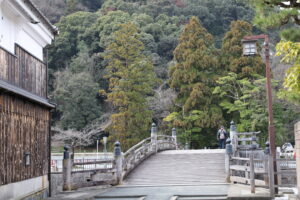
投稿タイプ:sightseeing
Ango Bridge
Bridges in this large, semi-circlar shape are also known as ""taiko"" bridges. In fact, a view of the ""Misty Spring Moon at Ango Bridge"" is listed amongst the ""eight picturesque views of Yawata"" (lists of “eight views” have historically been a common style of compiling beautiful and scenic locations in East Asia).
The bridge spans across the Hojo River, both banks of which feature walking paths, and these, along with the grounds of Iwashimizu Hachimangu Shrine on the right bank, are popular places for locals to relax.
Ango Bridge is also the location of the Hojo Ritual, held in the morning as a part of the Iwashimizu Festival.
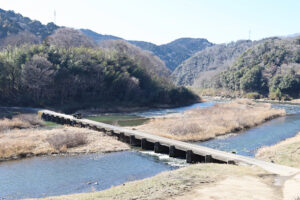
投稿タイプ:sightseeing
Koiji Bridge
The Kizu River runs east to west through the center of Minamiyamashiro Village. There are three bridges in the village, one of which is Koiji Bridge, a low water crossing bridge designed to be underwater during floods.
This type of bridge has no railings.
Because the bridge itself is designed to sink under floodwaters, it lowers the risk that the bridge itself will be washed away.
It's said that if you walk across Koiji Bridge to Koishidani Shrine, your wish will come true.
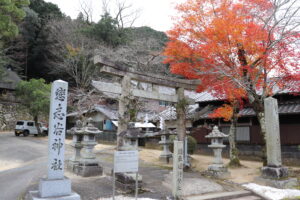
投稿タイプ:sightseeing
Koishidani Shrine
Located on the banks of the Kizu River, Koishidani Shrine enshrines the favorite mistress of Emperor Go-Daigo. Since long ago, visitors have come to pray to this guardian deity for women, seeking blessings for conception, safe childbirth, and recovery from diseases that affect women. Today, during the shrine's annual festivals in April and September, people come from afar to visit the shrine.
Koshidani Shrine is also known as a power spot for young women looking for success in romance or finding a partner, and recently, even men have begun to visit it. There is a heart-shaped rock within the shrine grounds, and it is said that if you can find it, you wish will come true.
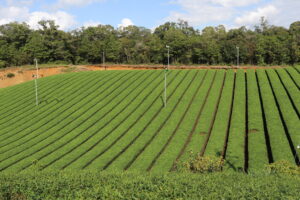
投稿タイプ:sightseeing
Tayama Tsurugi Tea Fields
The Tayama Tsurugi Tea Fields are located away from villages and homes, some distance away, where they make use of the slopes of the hillsides. The vast tea fields extend here, each of the rows arranged not to follow the contours of the earth, but unusually in ""standing rows"" that lead straight up the slopes. This pioneering landscape has been adapted to suit the mechnical systems of modern tea cultivation.
Visitors to the tea fields can take a glimpse into the history of Uji tea production in the modern era and the cultural landscape created by this unique topography.

投稿タイプ:column
What’s on? A Calendar of Traditional Events in Kyoto Prefecture

投稿タイプ:column
Yawata: The Incredible Kyoto-Osaka Stopover You’re Missing

投稿タイプ:column
